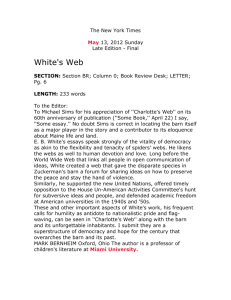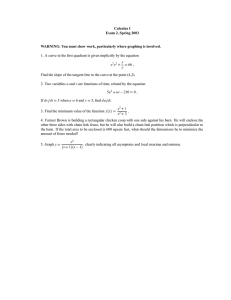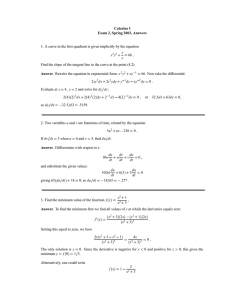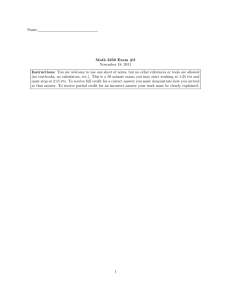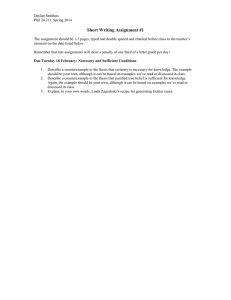Document 13519380
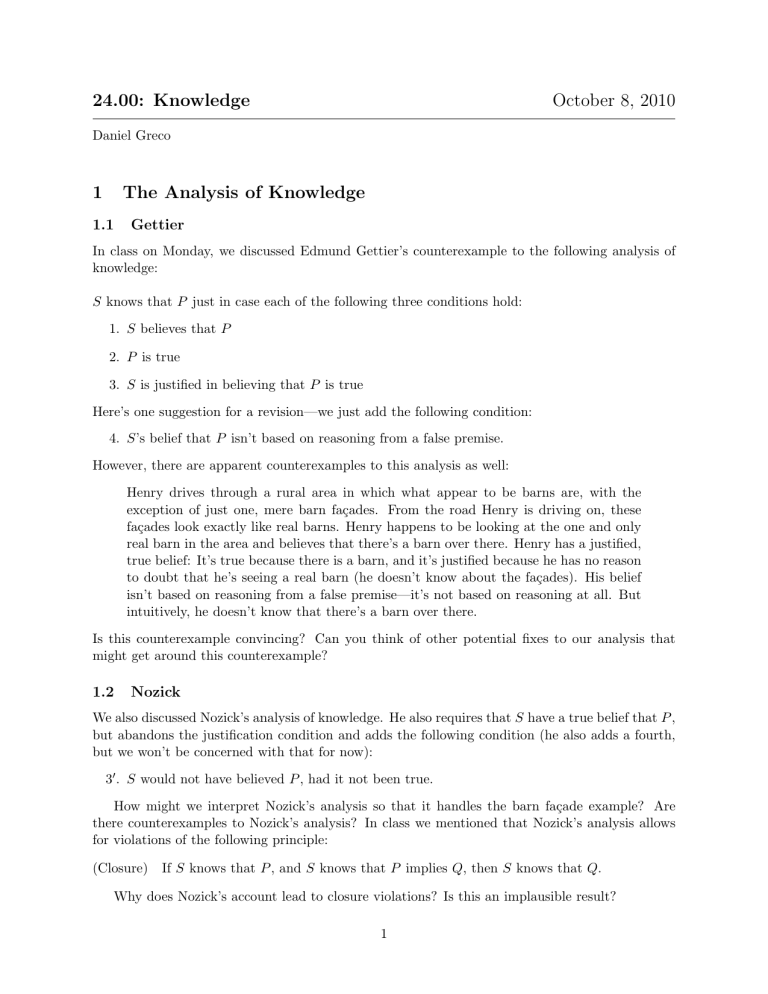
24.00: Knowledge
Daniel Greco
October 8, 2010
1 The Analysis of Knowledge
1.1
Gettier
In class on Monday, we discussed Edmund Gettier’s counterexample to the following analysis of knowledge:
S knows that P just in case each of the following three conditions hold:
1.
S believes that P
2.
P is true
3.
S is justified in believing that P is true
Here’s one suggestion for a revision—we just add the following condition:
4.
S ’s belief that P isn’t based on reasoning from a false premise.
However, there are apparent counterexamples to this analysis as well:
Henry drives through a rural area in which what appear to be barns are, with the exception of just one, mere barn fa¸ From the road Henry is driving on, these fa¸ look exactly like real barns.
Henry happens to be looking at the one and only real barn in the area and believes that there’s a barn over there.
Henry has a justified, true belief: It’s true because there is a barn, and it’s justified because he has no reason to doubt that he’s seeing a real barn (he doesn’t know about the fa¸cades).
His belief isn’t based on reasoning from a false premise—it’s not based on reasoning at all.
But intuitively, he doesn’t know that there’s a barn over there.
Is this counterexample convincing?
Can you think of other potential fixes to our analysis that might get around this counterexample?
1.2
Nozick
We also discussed Nozick’s analysis of knowledge.
He also requires that S have a true belief that P , but abandons the justification condition and adds the following condition (he also adds a fourth, but we won’t be concerned with that for now):
3
�
.
S would not have believed P , had it not been true.
How might we interpret Nozick’s analysis so that it handles the barn fa¸ example?
Are there counterexamples to Nozick’s analysis?
In class we mentioned that Nozick’s analysis allows for violations of the following principle:
(Closure) If S knows that P , and S knows that P implies Q , then S knows that Q .
Why does Nozick’s account lead to closure violations?
Is this an implausible result?
1
1.3
Possible Positions on the Debate as a Whole
Here are some attitudes you could have towards the project of coming up with an analysis of knowledge.
1.
Sure it’s hard, and we haven’t found one yet, but we should keep trying.
2.
The failure of attempts to analyze knowledge shows that we should get rid of the concept.
When we’re trying to think precisely, we should put things in other terms (perhaps we should ask how probable various claims are, rather than whether or not they’re known) and should regard knowledge-talk as vague and unhelpful.
3.
Knowledge can’t be analyzed.
So what?
On pain of an infinite regress, not all concepts can be built up out of more basic ones.
Maybe knowledge is one of those basic, building block concepts that’s useful for a range of purposes, but not analyzable in more primitive terms.
2 Puzzles and Paradoxes
2.1
Surprise Exam
Recall the example from Wednesday’s lecture.
A teacher announces that there will be a surprise exam in the following week, where an exam on day d is a surprise just in case the students don’t know at any point before d that the exam will be on d .
• How did this lead to a paradox?
• It may help to think about the one-day case, where the teacher tells the students: “there will be an exam tommorrow, and you won’t know before tomorrow that the exam will be tomorrow.”
• What should we say about this case?
Does this lead to a resolution of the paradox in the original case?
2.2
Dogmatism
Define “misleading evidence” as evidence for a claim that is in fact false.
The following argument looks valid.
1.
P
2.
If P , then if there is evidence against P , that evidence is misleading.
3.
If there is evidence against P , then that evidence is misleading.
(1, 2)
But while this argument is valid, it looks like it would be bad reasoning to engage in.
After all, suppose I know that P , and I use the argument above to conclude that if there is evidence against
P , it is misleading.
Now suppose I get some evidence against P , and I conclude that, because it is evidence against P , it must be misleading.
So I disregard it, and continue to believe that P .
This looks irrational.
• What went wrong?
• How do things look if we put things in terms of degrees of confidence, rather than binary states like knowledge/ignorance and belief/disbelief?
2
MIT OpenCourseWare http://ocw.mit.edu
24.00 Problems in Philosophy
Fall 2010
For information about citing these materials or our Terms of Use, visit: http://ocw.mit.edu/terms .
